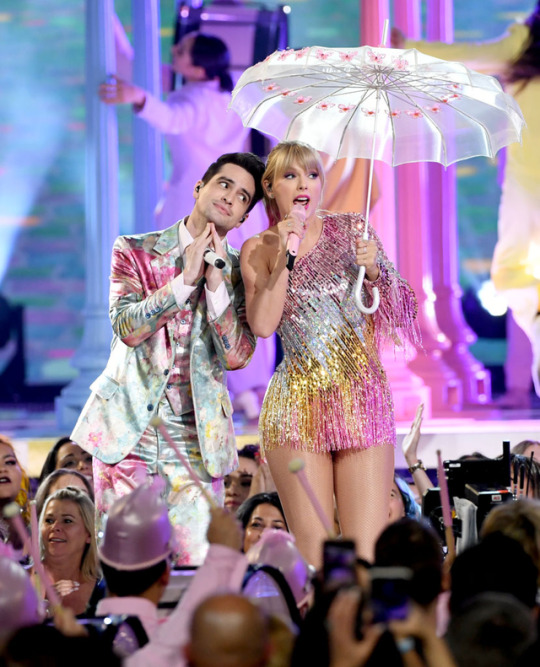Video
122K notes
·
View notes
Text
The English: This is our legendary King Arthur. His bravest knight is named Gawain who cut off a green giants head
The French: That’s cool, but what if his coolest knight was FRENCH and practiced INFIDELITY with the QUEEN
The English: That’s not…
The French: His name is Lancelot.
The English: Okay actually that name frickin rules. Proceed.
30K notes
·
View notes
Text
“How Teen Fiction Can Change The World”
The Patrick Hardy Lecture has been running annually since 1989. Guest speakers from the world of children’s books, including the likes of Jacqueline Wilson, Meg Rosoff, Juno Dawson, and Michael Morpurgo, have taken to the lectern, and this year I had the overwhelming privilege of speaking to those who work in the industry.
“How Teen Fiction Can Change The World”
Holly Bourne, Patrick Hardy speech, 2020
Before I get going, at the risk of sounding like a yoga teacher, I want to ground us all in this room. Right here. In this moment. It’s a Wednesday night in winter, you’re sitting in a library, and you’re about to listen to me give a lecture about stories. So, high chances are…you really like books. At some point in your life, you stumbled across a story that won you over. You became consumed by the magic of fiction, and could never go back. There are probably a few key books that you’ve read that you honestly believe changed you. Improved you. And reading those books may have led to you making a number of small decisions throughout your life that paved the way for bigger decisions, that, all collected together, led to this very point in your life. Right now. This room. The people sitting around you. Your passion. Maybe even your career. Reading is likely the part of your identity that you feel the proudest of, and the most nourished by. I know that’s true for me.
So, I just want you to take a few moments to think about the books that led you here today. Directly, or indirectly. The books that you’ve no-doubt read and reread countless times. The books that you feel are etched onto your soul. That made you who you are. That helped you through life and steered you towards becoming someone you’re proud of… And I’m going to go out on a limb here and say, I’m guessing that those books – those life-changing books – are books that you read as a teenager.
This is the topic of my speech today. How I believe teen fiction doesn’t only have the power to change a young person’s life. But how that magical transformation can start ripples that can actually change the world for the better. I truly believe that YA books – writing them, publishing them and distributing them – is an act of activism that can start huge, positive, social change.
But how?
Before I talk about teenagers, I want to explore the powerful nature of stories themselves. Our brains are wired for stories – they are how we learn to survive in the world. Human survival needs two things – the basics of how to keep yourself out of danger, and how to keep in favour with the social group around you. We are pack animals. We need the surrounding community to survive. And we constantly tell each other stories about how to live. Information is more palatable if it’s in the form of a story. Rather than saying to someone “Don’t eat those red berries”, we’re much more likely to engage with that life-saving information if someone says, “Did you hear about Ig, the caveman from next door? Oh my God, it was AWFUL. He ate those red berries on the bush outside, and his stomach exploded ALL OVER THE CAVE. It was so gnarly. They’re still cleaning it up…”
The same is true with instructions on how to be socially accepted by others. Linguistic experts have found humans spend most of their conversation time gossiping about people who aren’t there. Telling stories on each other. Gossip is actually narrative that instructs humans on what is and isn’t acceptable in their social group. Again, we’d get bored of an information manual. But if someone comes over to you, wide-eyed, saying, “Have you heard that John left his wife for his twenty-two year old secretary? And now everyone has turned on him and he isn’t welcome at the Safari Supper any more,” you’d be lapping it up. But you’d also be learning important lessons about how to behave. Instructions are boring, but stories are riveting. Our brain rejects one, and embraces the other. And, through narrative, we learn how to survive – both emotionally and physically – in this world.
I find the work of Sigmund Freud hugely influences how I write stories, and how to ensure they connect with my readers. Some of you in this room will, no doubt, have done English degrees and will be familiar with how Freud’s theories relate to narrative. So apologies if this is a recap, but it’s something I try to remind myself of whenever I’m writing.
Freud believed all humans lived in a state of constant conflict between three parts of our psyche – our Id, our Superego and our Ego.
Our Id is the totally subconscious, primitive and instinctual part of us. It’s our selfish desires. Our animal selves. And it’s always there.
I’m hungry.
I want that.
I want to have sex with that person. NOW.
A newborn baby is completely Id-driven – at the mercy of its desires. And that part of us never goes away. The Id is always with us, steering us to survive. Utterly reactive and animalistic.
Whereas the Superego is there to tame the Id. The Superego is the cocktail of messages we marinate in throughout our lives, telling us what a person should or shouldn’t do. The Superego is about consequences. It’s your values. Your moral compass. Don’t steal. Don’t snatch. Don’t dry-hump that person on the Tube even if you really fancy them. Essentially the Superego socializes us. The most powerful influence on your Superego comes from your parents and your early childhood experiences. But society has a part of play. Laws are part of the Superego – telling us what is and isn’t legally acceptable. And culture plays a huge part in shaping it too. What should a man be? What should a woman be? What is right, or wrong? And the Superego isn’t always a good thing. It provokes a lot of guilt in us, and, if taken too far, feelings of shame can make us unhappy.
And, finally, the Ego is the navigator of these two conflicts. It’s the “weigher-upper” – listening to the Id and the Superego and making the best judgement it can. I like to believe that the Ego is essentially who we are as a person, based on the decisions we make as a result of this eternal internal conflict. Rather than beating ourselves up for having “bad thoughts”, we should judge one another, and ourselves, on our actions. It’s our actions that make us who we are. We are what we do, not what we think.
We learn about Freud in creative writing because, to some degree, every successful story represents the struggle between the Id, the Superego and the Ego. We are drawn to these stories because they reflect the battle we fight in our heads every day. If you consider the huge, ongoing success of comic book films, you can see how Freud’s theory explains their popularity. Baddies in these stories are often very Id-driven – selfish, compulsive and uncaring of how their actions impact those around them. Whereas superheroes are disguised “Superegos” – representing goodness and morality.
But what excites me most about Freud isn’t how I can use his work to shape my books, but the belief I have that reading powerful stories can actually contribute to a person’s Superego. How the act of reading a work of fiction can actually cause a psychological change in us that makes us better people in our non-fiction lives. And the nature of the adolescent brain makes the opportunities for this even richer.
So why books? What makes fiction the most potent vessel for activism compared to, say, films, TV, video games or even an Instagram caption? It’s because the very nature of reading itself is an irreplicable act of immersive empathy. When I go into schools, I always tell teenagers that novels are like really safe, legal, hallucinogenic drugs. I once read a funny tweet that said that reading a book is crazy when you consider what’s actually taking place. Effectively, you are staring at symbols printed onto a dead tree and vividly hallucinating. That’s pretty magical when you truly consider it. Even with all our technological advances, even with virtual-reality goggles, nothing quite recreates reading. How a reader is effectively transplanted into the mind of someone who doesn’t exist – feeling their feelings as they’re feeling them, experiencing their experiences as they experience them. When written well, and used for good, stories can educate readers about all sorts of social issues by provoking an empathetic and emotional response. You can open a reader’s eyes to the truth of what life is like for people who aren’t like them – from being on the receiving end of racism, to experiencing mental illness, trauma or physical disabilities. In To Kill A Mockingbird, Atticus tells his children that, in order to understand a person, you have to try and crawl into their skin and walk around in it. That’s exactly what books do.
It can also be truly revolutionary and reassuring for a reader to find a book where they see themselves in a main character. Especially if this main character’s hardship or thought processes are something you believed was unique only to you. Being seen, heard, understood – sometimes the first time someone feels like that is through the pages of a novel. Alan Bennett once spoke of the magic of this moment and how it’s like a hand has come out of the pages and is holding yours. And if you’re reading about a main character suffering how you suffer, and yet this character is able to stand up and be brave… Whether that’s speaking up, fighting back, or simply just asking for help…well, this connection between writer and reader could well inspire the reader to be brave themselves.
Now, let’s go back to those books you had in your head. Your favourite books that you read when you were younger. The ones that really lodged in. What’s going on there?
There’s actually some neuroscience that can explain this. Scientists have found that during puberty, when a child’s brain is rewiring to become an adult brain, a side effect is that we make memories more strongly compared to any other time in our lives. You can recall and connect with your teen years more easily and potently compared to your twenties, thirties and onwards. I certainly know this to be true for myself. Ask me to close my eyes and remember being fifteen and, yeah, I’m there. Hell, I don’t even need to close my eyes. I can already smell the Lynx Africa, remember who kissed who at the school disco. I can remember the full names of all the popular people in my year group. And yet, if you ask me what I was doing at twenty-five, twenty-eight, thirty-one, I’d have to think about it. Trying to recall what job I was doing, struggling to remember certain people’s names… It’s vaguer, and certainly less visceral.
On top of this they’ve found that teenage brains are hyper-attuned to social stimuli. From an evolutionary perspective, adolescence is when you have to figure out how important you are to your social group and that impacts your chances of survival. This means teenagers are constantly asking themselves: Am I important? Do I matter? Does anyone care about me? Because of this, they’ve found that teenage memories particularly linked to identity and sense of self are even stronger. So if a teenager stumbles across a book that is holding their hand through its pages, just consider the POWER of that memory.
And let’s not forget just how wonderfully malleable young people are. Teenagers are so much more open to change – both in society, and in themselves. They haven’t calcified yet. They haven’t had as many years of repeating unhealthy patterns and gathering biased evidence to prop up unhelpful theories – about the world and their sense of self. I saw a talk once by a psychologist who said we need to stop dismissing our younger years as being unimportant years of freedom that do not matter. Actually, your youth and what you do with it paves the way to the future, and tiny adjustments, over time, can see you end up in a totally different place. She used the analogy of aeroplanes, and I love to think of teenagers as aeroplanes taking off from Heathrow airport. The planes all soar up in the same direction, but with minor changes in angle, they land in New York or Brazil or the Arctic.
I’ve started to see evidence of my books causing angle changes in the journeys of my readers’ lives. I’ve now written ten YA novels, and have built my career by being honest with teenagers about the hardship of their reality, as well as encouraging them to fight for a better future and a better world. I educated them about feminism through my Spinster Club series, asked the question Is mental illness preventable? in Are We All Lemmings And Snowflakes? and, most recently, wrote about an emotional and sexually abusive relationship in The Places I’ve Cried In Public. I’ve been touring the book with Women’s Aid and have become an ambassador for their Love Respect campaign that educates young people about healthy relationships. I’ve always believed that my stories were activism, and hoped they’d create positive changes in the Superegos of my readers. And I’ve now been in the game long enough to see my faith wasn’t misguided.
I met my very first Spinster Club alumni only last week, at a Women’s Aid event I did at Bristol University. After my talk, a young woman came up to me, squealing, and revealed she’d read my Spinster Club books as a teenager and they’d made her a feminist. She then went on to say she’s now studying law, and has got a barrister traineeship and wants to use law to protect vulnerable women. I’m not going to lie – it was probably one of the happiest moments of my life.
And the ability to tweak a person’s journey has never been more evident than in my latest book, The Places I’ve Cried In Public. Since it’s been published, it’s had more crossover appeal than I thought, and I now get several messages a week from women in their twenties, thirties, forties, fifties and even sixties, telling me their own harrowing abuse stories. They tell me about their PTSD, the university degrees they never got because their partner never let them go, their fights through family court, their lost years, lost self-worth, their therapies and their ongoing recoveries. Each tale is just as heart-wrenching as the last. And all of them write to me, I wish I’d read your book when I was younger, or I wish I could go back in time and give this to my 14-year-old self. They wish they’d known the red flags to look out for that could’ve prevented them from going down a path they’re still on.
And when I talk to teenage readers about the same book…
“Well, those sorts of relationships sound terrible. I’m never going to let myself get into something like that.”
“I HATE Reese. I want to kick him in the eyeballs.”
“The book made me cry so much. I never want that to happen to me.”
I’m not saying preventing awful things is that simple, but, also, maybe it can be? When you combine everything I’ve spoken about, what’s to say we can’t use fiction to nudge teenagers into making healthier decisions that will benefit them? As well as hopefully entertaining them along the way.
When we start reflecting on the power of teenage fiction, as people who work in the industry, we need to ask ourselves: how do we utilize this? Maximize this? And, to me, the most important thing is to remove as many barriers as possible between teenagers and the stories that can change their lives. I see the need to address this in three ways.
Firstly, we need to ensure books are available to all teenagers, regardless of their means. Novels, and their life-changing magic, should never be allowed to become an elitist item. So we need to fight to keep libraries and school libraries open, and to keep trained librarians in position. Librarians are experts at matchmaking teenagers with the best books for them.
Secondly, we need to fight for all teenagers to be able to see themselves in books by making the publishing industry more diverse, and therefore the stories it produces more diverse. The magic of fiction can only work if there’s an authentic connection between writer and reader, and diverse voices are an essential component for this to occur. If we think back to that reminiscence bump, and how memories about identity leave a particularly strong mark, just imagine how it must feel to be a marginalized teenager who finds a book that finally gets them.
And thirdly, we can’t let our own maturity and “calcification” accidentally erect barriers by letting literary snobbery shame a teenager for what they are reading. There is no such thing as good or bad reading – there is only reading. We need to celebrate and reward the books that teenagers are connecting with. It’s the connection that changes a life, not the beauty of a sentence. Yes, perhaps ideally, we want them to read the classics, but they’re much more likely to get there if the world of reading seems like an open, non-judgemental, non-elitist place. Let’s also recognize how hard it is to write a book that’s “easy to read” – the craftsmanship that goes into creating a story that pulls a teenager away from the huge list of distractions fighting for their attention. Literary snobbery is an unhelpful stance that will only inform a teen’s Superego in a negative way, leading to shame and exclusion. In trying to crowbar a teenager into reading a certain type of book, you’re potentially putting them off all books for ever.
I started by grounding us in this room. And now, after geeking out on you for half an hour about brain science and psychology, I want to bring it back to this room. I want us to take a moment to reflect on just how much power sits within these four walls. Collectively we have access to thousands upon thousands of young people, and a passion for the stories we want to give them. Just think of the ripples we can create by the simple, wonderful act of activism which is giving a book to a teenager. I honestly believe that giving the right book to the right teenager at the right time can change and possibly even save their lives. And I also believe that all those teenager aeroplanes, taking off from Heathrow airport, feeling empowered and understood, will go on to achieve remarkable things. Teen fiction really can change the world, and make it a better place.
A long time ago, someone gave you a book that led to you sitting in this room today. Let’s go out and start that journey for others. Who knows who will be sitting listening to the Patrick Hardy lecture in twenty years’ time, and what they will have achieved. But every time I think of this, I feel nothing but hope.
Thank you so much for listening.
14 notes
·
View notes
Text
not to be controversial but like. women who don’t compliment or validate their male significant others and instead criticize them constantly or make fun of them constantly really bother me. like tell ur boyfriend he’s cute or that you like his ass, he needs to feel good about himself too
76K notes
·
View notes
Text
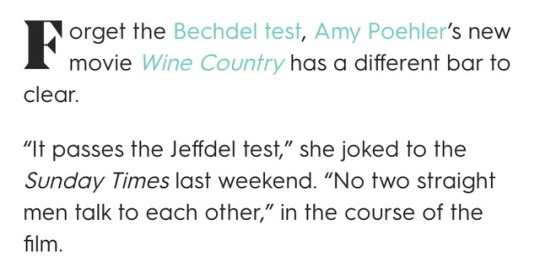
Move over Bechdel test, the Jeffdel test is in now
15K notes
·
View notes
Text
“young adult dystopian novels are so unrealistic lmao like they always have some random teenage girl rising up to inspire the world to make change.”
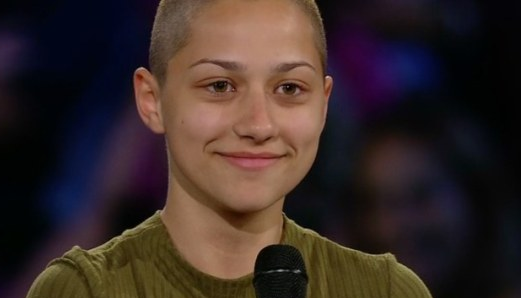
a hero emerges
500K notes
·
View notes
Text
bold of you to assume i won’t tell you i love you again just because i did ten seconds ago
81K notes
·
View notes
Text
Oh. My. God.
So, here I am….just minding my own business…streaming “Me!” and cleaning my desk off and then one of my “reputation” CDs falls out of a box….and thus ignited the rabbit hole hell I call my life recently…
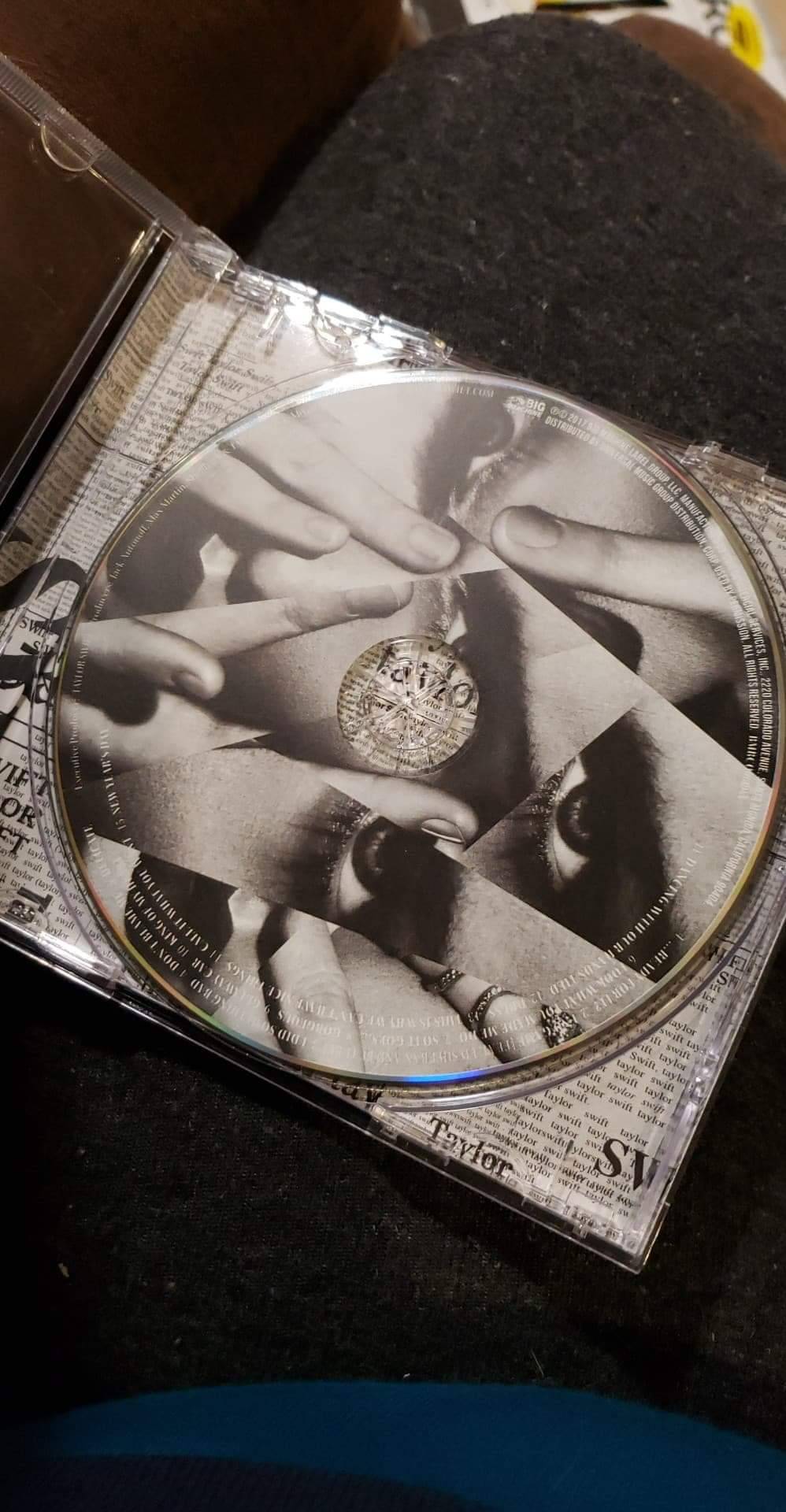
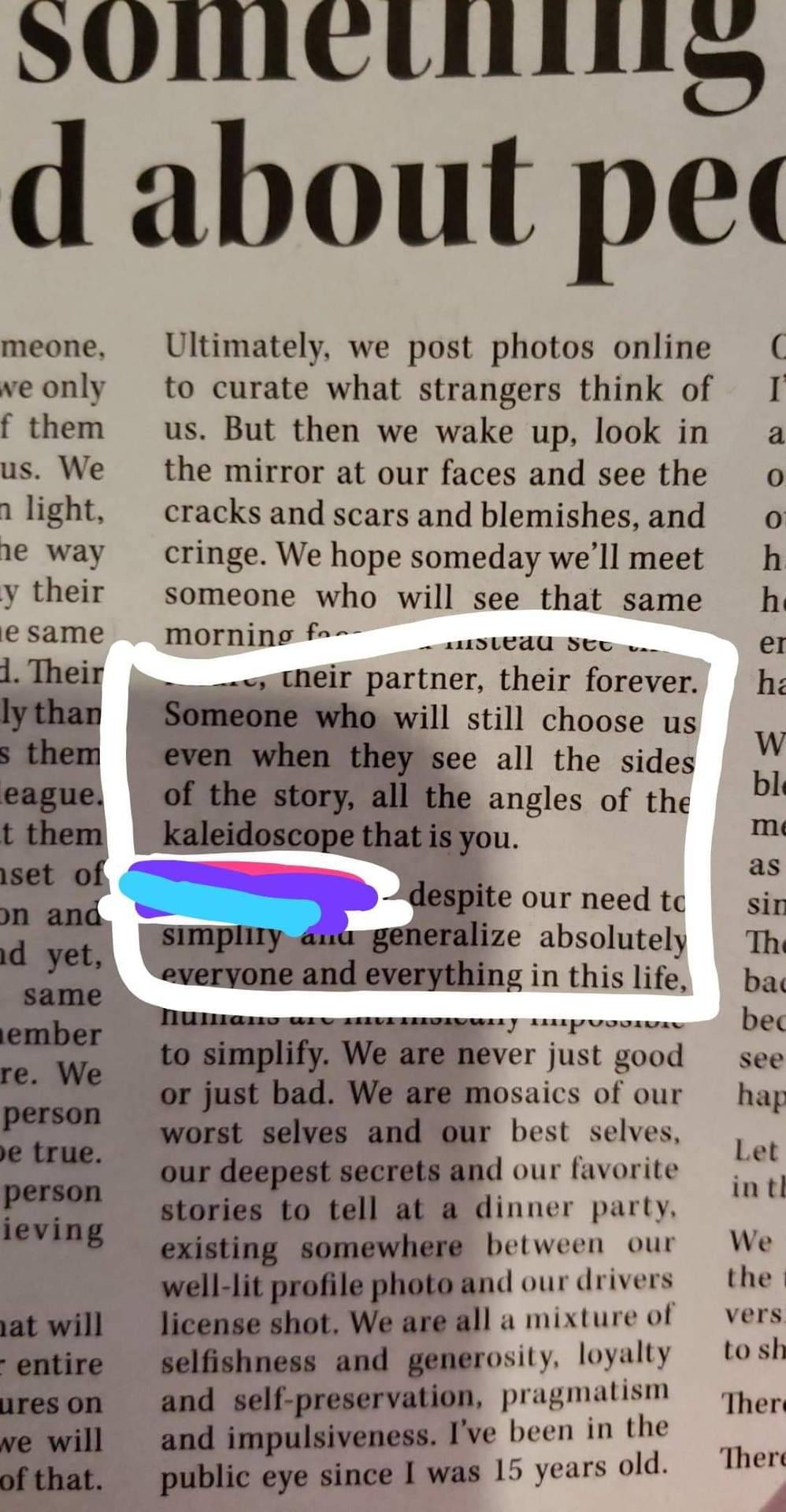
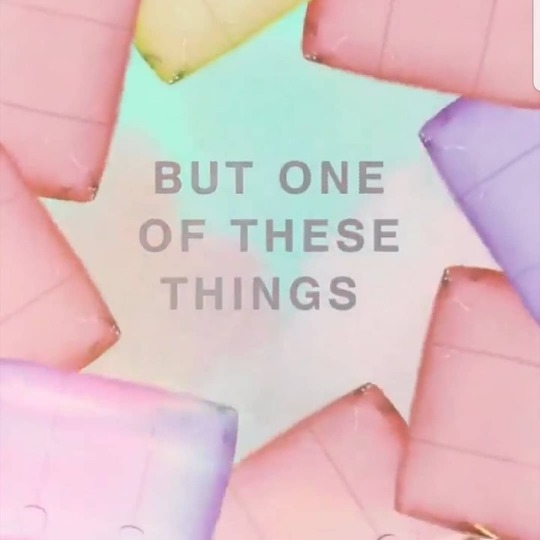
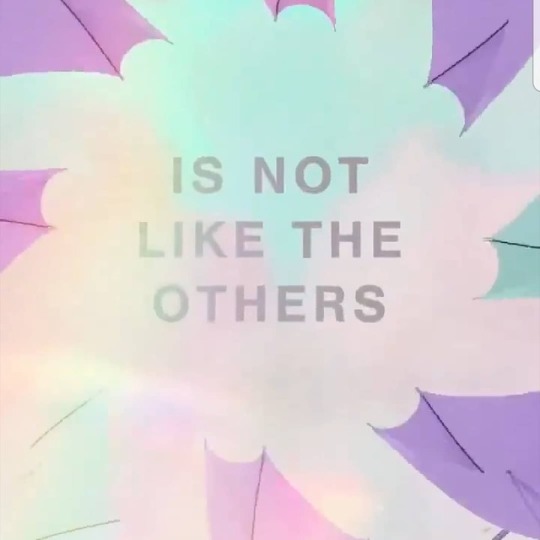
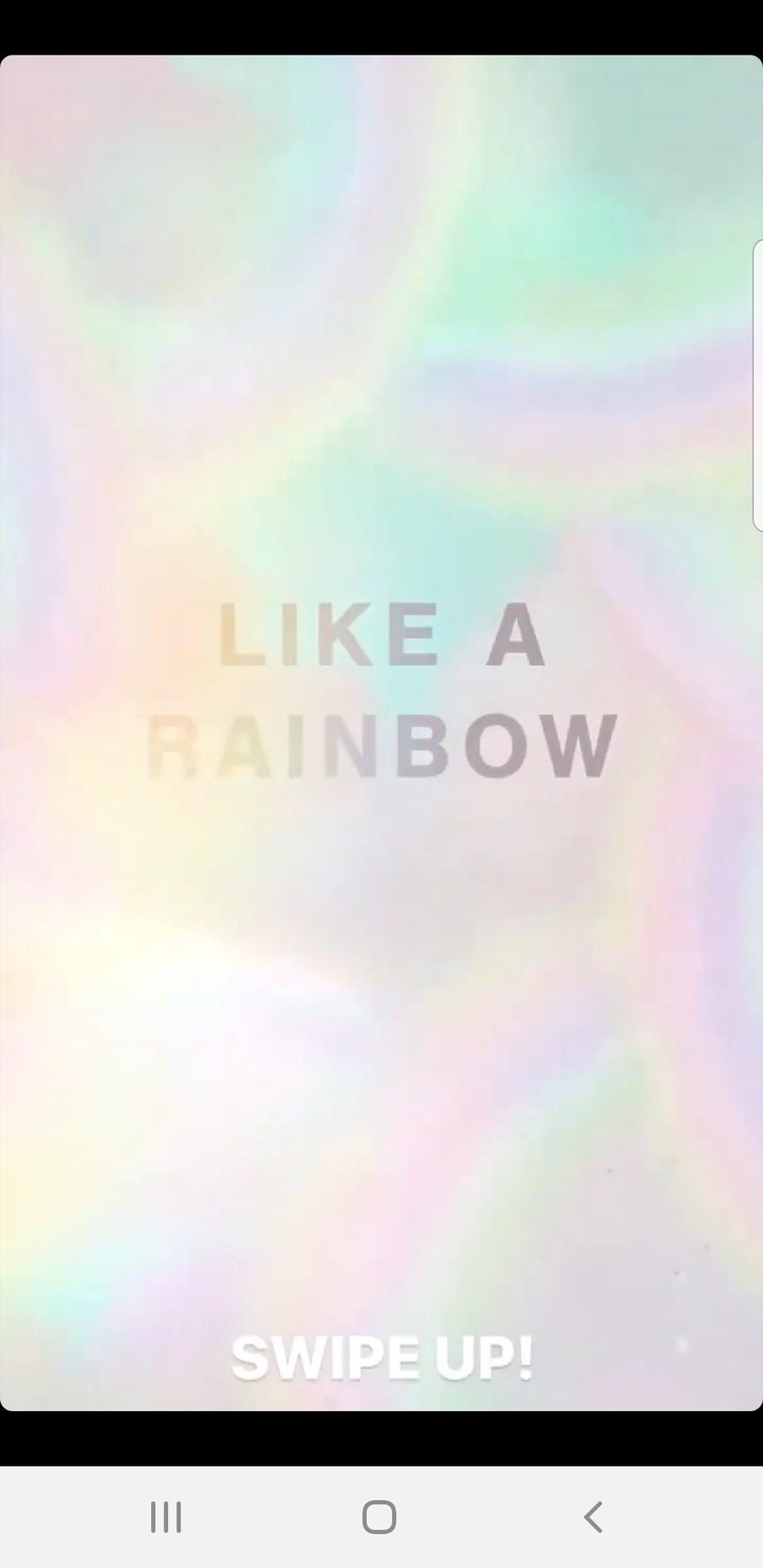
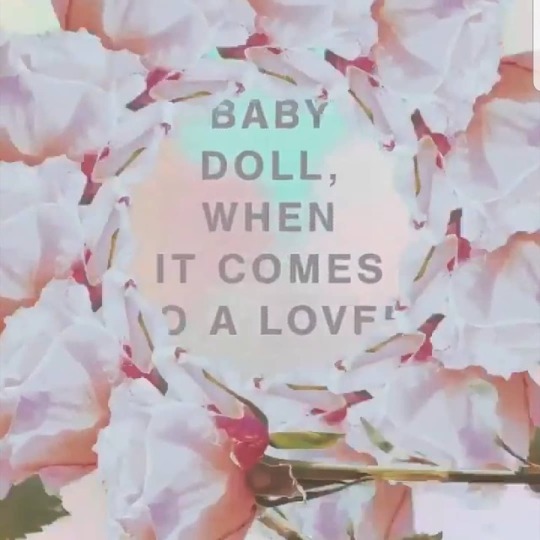
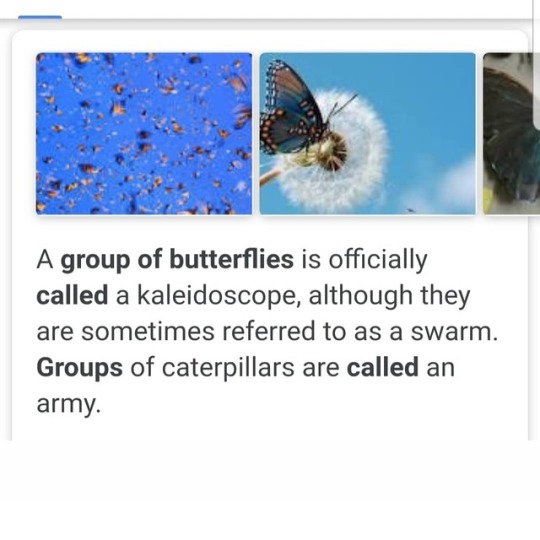
RIGHT IN THE MIDDLE OF THE DAMN ALBUM COVER.
@taylorswift what are you doing to meeeeee?!
246 notes
·
View notes
Photo
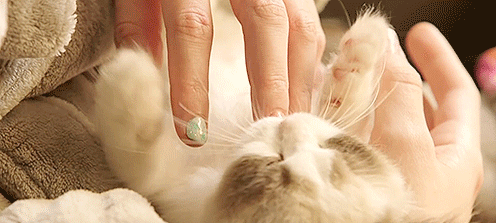
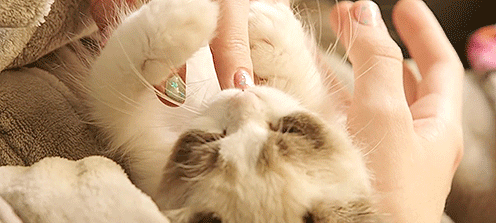
。・:*:・゚★。・:*:・゚☆。・:*:・゚★
3K notes
·
View notes
Text
I’m loving the aesthetic for this new Taylor Swift era - the pastels and flowers and beautiful dresses? I am in! 🌸
Also, when I really want to embrace to fashion of this era, I won’t have to buy anything new. I already have so much pastel coloured stuff and floaty dress/skirts and an awful lot of flower crowns 🙈
0 notes
Photo
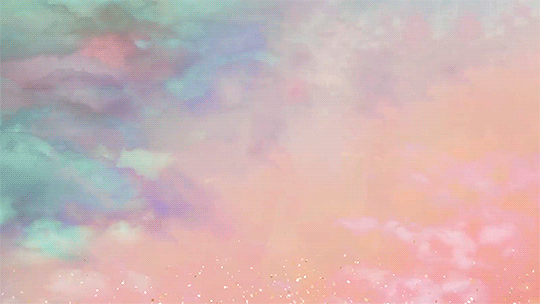
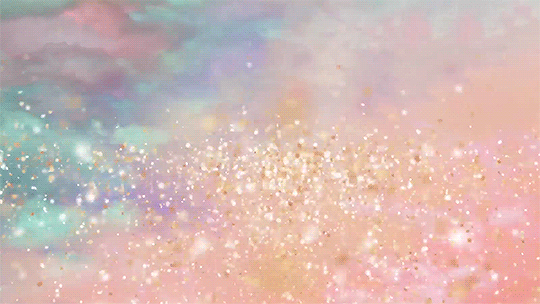
the heart confetti exploding on taylor’s website ♡
3K notes
·
View notes
Text
diamond hearts, a bike, cats, tule, chicken frames, colorful tiles…whatever 4.26 is going to be, she is going to drop something crazy, colorful, happy and iconic
40 notes
·
View notes
Text
the fact that people dont consider game of thrones as “cringey” of a show as doctor who or sherlock is literally just because of how many men are obsessed with it. thanks for coming to my ted talk.
92K notes
·
View notes
Text
lol girls really aren’t allowed to enjoy anything if a girl wears vans and american eagle jeans and posts selfies on vsco she’s a basic bitch if a girl gets drunk at parties and wears tube tops and has sex she’s a slut if a girl has pressed flowers in her phone case and wears doc martens and eats vegetarian she’s an ~ uwu wannabe quirky girl ~ if a girl hangs out with guys and plays video games she’s still a slut she’s just pretending to be a bro we aren’t allowed to enjoy anything or be ourselves under any circumstances you can really smell the misogyny can’t you
69K notes
·
View notes
Text
@taylorswift changed the aesthetics of her blog way back in February when she went to the Baftas. It’s been pastels ever since.
1 note
·
View note
Text
cute things to call your girlfriend
demon queen
mythic bitch
the almighty
340K notes
·
View notes
